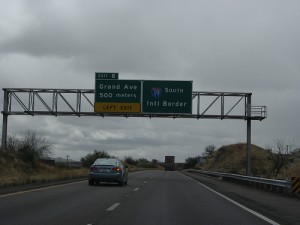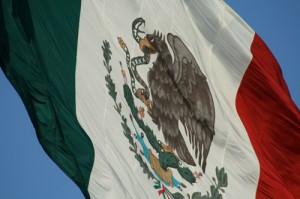 On a recent visit to Tijuana it struck me as not being quite what the media was reporting. Sure there was border violence, random kidnappings and petty crime, but overall some things strike me as better there than in the “first world” we inhabit. Walking down the street I saw folks selling every trinket imaginable, street performers dancing, singing, or playing, and vendors of every sort offering their products and services. Most of this market activity would attract immediate attention from law enforcement or regulators in almost any town in the U.S. However, these folks were just trying to make a little money. Generally, the market works, proof that you don’t need enormous infrastructure and arrogant bureaucrats protecting us from ourselves. If you think about it, these are just a bunch of unregulated small businesses. The entrepreneurial spirit in action!
On a recent visit to Tijuana it struck me as not being quite what the media was reporting. Sure there was border violence, random kidnappings and petty crime, but overall some things strike me as better there than in the “first world” we inhabit. Walking down the street I saw folks selling every trinket imaginable, street performers dancing, singing, or playing, and vendors of every sort offering their products and services. Most of this market activity would attract immediate attention from law enforcement or regulators in almost any town in the U.S. However, these folks were just trying to make a little money. Generally, the market works, proof that you don’t need enormous infrastructure and arrogant bureaucrats protecting us from ourselves. If you think about it, these are just a bunch of unregulated small businesses. The entrepreneurial spirit in action!
Homes and shops seemed a bit different too. They were a lot more varied in their decoration. As far as safety, the police were around, but didn’t seem to be trusted much. The people took security into their own hands. This is because their police are inefficient and often corrupt, and yet, when was the last time you saw law enforcement in the U.S. actually prevent a crime, rather than responding after the fact? Just recently, in Times Square, the police responded to the attempted car bombing only after some lowly street vendor alerted them, and that was only possible because the terrorist was so incompetent he used the wrong materials. Had it not been for his incompetence, the police would have merely been cleaning up after the fact instead of taking credit for preventing it.
In Mexico they take care of their own with dogs and other deterrents around their property. The gun laws might be a bit stricter (although they are rarely enforced), and the violence is related to the drug trade. It is the drug trade that really makes things worse. Of course, these problems are really our problems because we’ve outlawed the drugs but done little to really control our own border. Then we ask an already weak and poor people to fight our drug war for us. Our policies have done nothing to stop the behavior except make it extremely profitable for those on the production end of the business.
Less regulation increases the variety of small businesses. Like anyone, they use their ingenuity instead of worrying about obeying a complex and ever growing series of codes and regulations. Walking around you can find a food vendor on just about every street corner. The burrito I had on the corner underneath a nightclub was some of the best local fare I have ever had. In the U.S., the place probably wouldn’t be in business because of all of the registrations and licensures that would be required. Just because a guy can make a killer burrito and loves to chat with customers doesn’t mean he can afford all the fees and permits, or even understand the process!
 Another thing about Mexico is that not only are there a lot of gray areas, but the city and state governments are constantly disagreeing with the federal government. What is enforced in one region may be totally different in another. In “normal” times we might lament this state of confusion and disagreement among governments, but, in a crisis, the confusion and lack of organization can actually benefit the prepared who have foreseen it and have planned accordingly. Contrast this with the developing police state in the U.S., where tyranny now seems far more likely than anarchy, and will represent a huge threat (perhaps the greatest) even for those who have done their best to prepare. It occurred to me while watching the unregulated, functioning market there that, if the world comes to a standstill, most people in the third world would just “keep on keepin’ on”, because things had never really worked for them.
Another thing about Mexico is that not only are there a lot of gray areas, but the city and state governments are constantly disagreeing with the federal government. What is enforced in one region may be totally different in another. In “normal” times we might lament this state of confusion and disagreement among governments, but, in a crisis, the confusion and lack of organization can actually benefit the prepared who have foreseen it and have planned accordingly. Contrast this with the developing police state in the U.S., where tyranny now seems far more likely than anarchy, and will represent a huge threat (perhaps the greatest) even for those who have done their best to prepare. It occurred to me while watching the unregulated, functioning market there that, if the world comes to a standstill, most people in the third world would just “keep on keepin’ on”, because things had never really worked for them.
So there really are some interesting differences when you contrast Mexico with the U.S. Sure, there are some risks and dangers with being there, but by looking a little deeper than just whatever sensational news the U.S. media feeds us, we can see beyond the headlines. The lesson we should consider is what we can learn from these people who, in many ways, are already living in the kind of world we see in our own future.
 Off The Grid News Better Ideas For Off The Grid Living
Off The Grid News Better Ideas For Off The Grid Living
